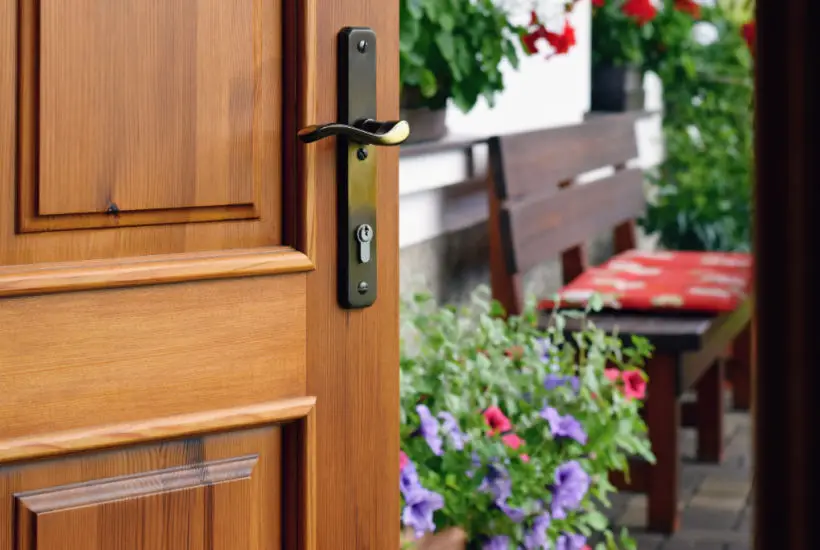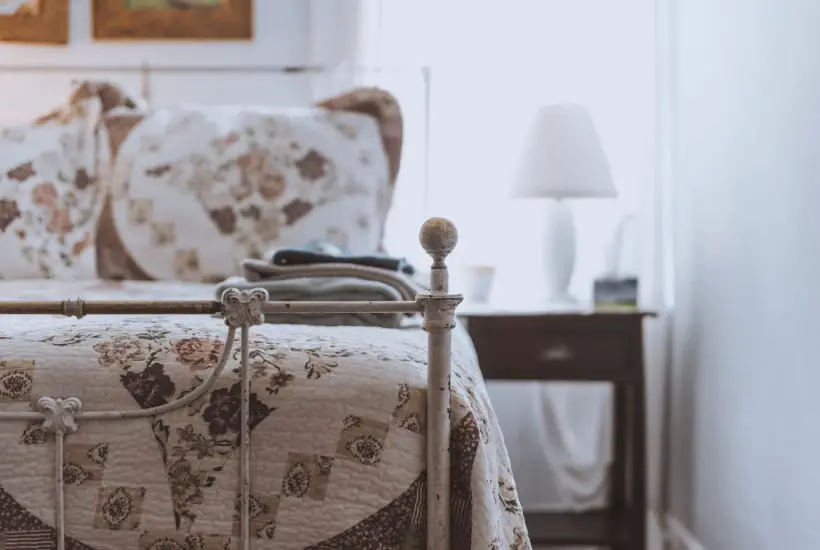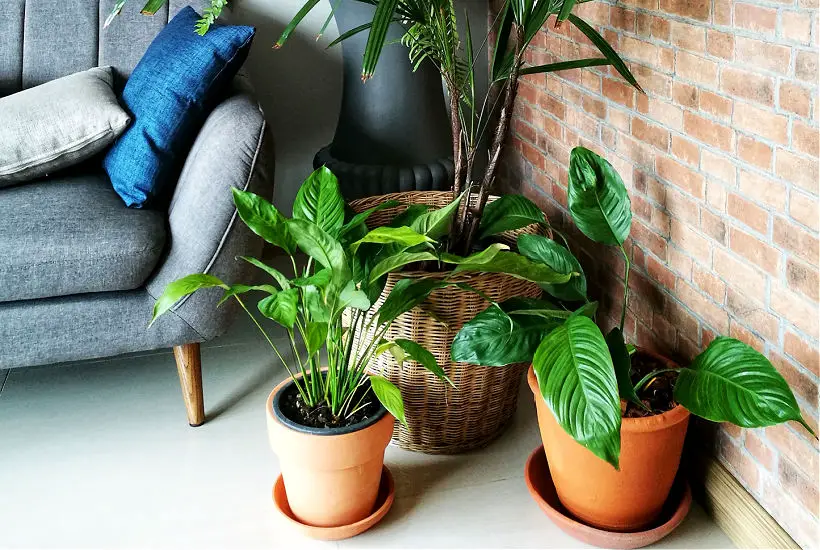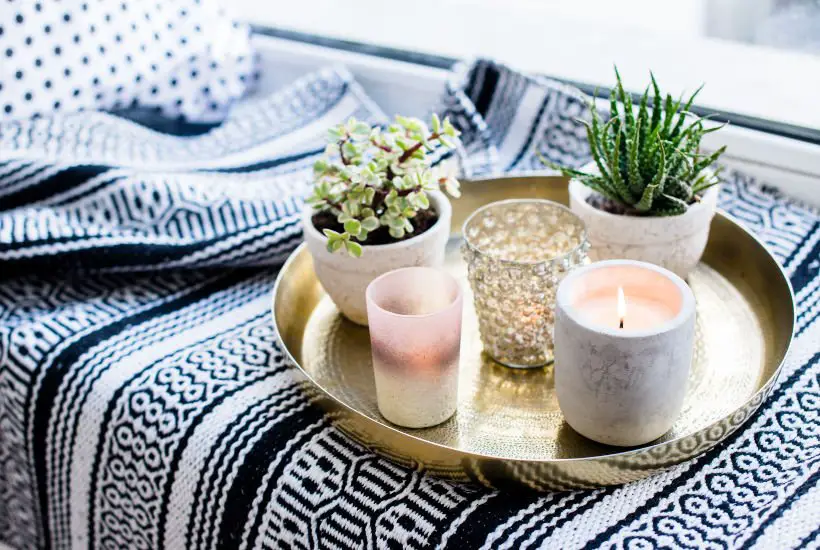Allergens are everywhere and can be difficult to eliminate. But, the good news is that, you can significantly reduce your exposure to them by making some lifestyle changes.
If you have allergies, keeping your environment clean is critical. It’s the first step in combating allergies. In this blog post I wanted to share with you my top tips on how do reduce allergens in your home including, making sure to clean bedding regularly to prevent dust mites, changing your HVAC air filters periodically and keeping windows closed as much as possible.

1. Use & maintain correctly Your Heating, Ventilation, and Air Conditioning System (HVAC)
HVAC systems come in handy for people who live with allergies. You can shut off your windows to prevent pollen from getting in while your AC circulates cool air, but the air filters in your unit must always be clean and you need to maintain your unit correctly to work effectively. Repairs should be done immediately if the unit doesn’t cool properly if you smell any unusual odours or if it’s leaking water. It’s always best to call a professional airconditioning service company like Jays Air Conditioning who will be able to quickly assess the problem and repair your air conditioning unit.
A regular filter maintenance is also important. Air filters gather debris, dust, and other pollutants from the air before it circulates. Because of that, the filters can get dirty or clogged up over time, so you must replace them regularly. An HVAC with a clogged air filter is bad for a person who has asthma because the dirt clogging the filter may leak and circulate in the room. So, the air filter must be checked regularly and replaced.

2. Invest In Allergen Resistant Floors
Houses are built with different flooring materials. But wood and tiles are the most ideal for people who suffer from allergies. Carpets aren’t good because they can hold onto dust and pet dander. If your house has carpet, consider replacing it with wood or tiles. You can then add washable rugs to improve the aesthetic.

3. Leave the allergens outside
Stop outdoor allergens at the door by taking off your shoes and changing clothes after being outside. This prevents the cross contamination from your work or outdoor clothes and shoes to your home. It’s a simple tip, but it’s amazing how effective it is.
4. Keep Windows Closed
While it’s important to have proper air circulation in the home, pollen can enter your house through open doors and windows. To limit pollen entering your room or house, try shutting down your windows and doors as much as possible.
When ventilating your home during pollen season, it’s best to do so during times when pollen counts are lowest, which is usually in the early morning or late evening. This is because pollen counts are typically highest during midday and early afternoon when the weather is warmer and sunnier, which can cause pollen to be released into the air. By ventilating your home during times when pollen counts are lowest, you can reduce your exposure to allergens and help alleviate allergy symptoms. Additionally, it’s important to use air filters with a high Minimum Efficiency Reporting Value (MERV) rating to trap pollen and other allergens and improve indoor air quality.

5. Be sensible around house Pets
If you’re allergic to pet dander, you should avoid pets. Pets, unfortunately, aren’t hypoallergenic. Plus, the allergens from animals are sticky. Keep as much distance as possible from them. If you have pets, keep them out of your bedroom and outside when you’re not home.
Another option is to choose a pet with less hair or fur and making sure that they are regularly groomed and cleanined to help reduce allergens in the home.
Here are examples of pets that are suitable for allergy sufferers.
- Dogs with non-shedding coats such as poodles, schnauzers, and Portuguese water dogs.
- Hairless rats, which have little to no fur and produce fewer allergens.
- Cats with low-shedding coats such as the Siberian and Balinese.
- Reptiles such as geckos, bearded dragons, and corn snakes, which do not produce dander or shed fur.
- Fish or water animals, but some people might be allergic to fish food

6. Remove Dust Mites
Dust mites are a serious problem for people who suffer from allergies. These allergens are a nuisance, particularly because they’re invisible to the eye. It’s impossible to remove all the dust from your bedroom.
However, you can reduce your encounters with dust mites in the bedroom by making the following lifestyle adjustments:
- Wash Bedding: After a long day’s work, you look forward to lying down and sleeping. Unfortunately, dust mites also like to camp where you sleep. Washing your bedding regularly to wash off these dust mites becomes extremely important. Wash pillowcases at least every three weeks, but changing your pillowcase after a week or some days may be a good idea if you’re extra sensitive.
- Cover Mattress: Over time, your mattress can gather dust mites. That’s why it’s important to have a mattress cover that limits buildup of dust mites. Ensure that you also wash your mattress covers regularly. Cleaning your headboard and bed frames regularly also helps to keep dust away.
Dust mites aren’t an asthmatic person’s best friend. Therefore, you should make a serious effort to keep your bedding clean. It’ll also help to vacuum your room regularly if your bedroom has a carpeted floor.

7. Be Careful When Buying Houseplants
Houseplants are a common décor piece in most homes. They can be a complementary piece to any home. They also help to make the air in your home cleaner. But it would be best to be careful when adding natural houseplants in your household as they may contain pollen harmful to allergy sufferers.
Most houseplants don’t contain harmful pollen—but don’t work with assumptions. You should make sure that it’s a safe plant before buying it. You also need to reconsider buying plants because they collect dust and could aid mold growth. Therefore, before adding plants to your home, research, and experiment beforehand.
8. Buy An Air Purifier
Running your AC while windows are closed certainly helps to create ideal internal conditions. But you can up the ante by investing in an air purifier instead. Ensure you buy an air purifier with a high clean air delivery rate (CADR). The higher the rating, the better. Also, ensure that your unit is big enough for your room.

9. Don’t use strong scent
Avoid using scented cleaning products or candles, which can trigger allergies.
Strong scents from cleaning products or candles can trigger allergies at home because they contain volatile organic compounds (VOCs) that can irritate the eyes, nose, and throat, and cause respiratory problems. VOCs are chemicals that can easily evaporate into the air at room temperature, and they are often found in cleaning products, air fresheners, and scented candles. When inhaled, VOCs can cause allergic reactions, such as sneezing, coughing, and wheezing, as well as headaches and dizziness. In some cases, exposure to high levels of VOCs can lead to more serious health problems, such as asthma and cancer. Therefore, it’s important to use unscented or low-VOC cleaning products and candles to reduce the risk of triggering allergies at home.
10. Manage any Mold or damp
Mold is a major concern for allergy sufferers. Numerous studies show mold’s negative effects on people with and without allergies. You must ensure your home is mold-free because breathing in the mold is hazardous to your health. If your house shows signs of mold growth, you should immediately contact a mold removal service which will be able to deal with the mold professionally and effectively with a long-lasting result. Don’t ignore the signs of mold buildup because it’s bad news for people with allergies.
Here’s how you can reduce mold in your house:
- Avoid running your shower for too long and make sure your bathroom is ventilated
- Use a dehumidifier if your house feels damp
- Keep humidity levels low, ideally between 30-50%, to prevent mold growth
- Don’t buy too many houseplants or buy those that don’t need that much water (such as succulents or cactus)
- Fix roof, window or any wall leaks as soon as you identify them
- Invest in basement mold removal.

Leave a Reply